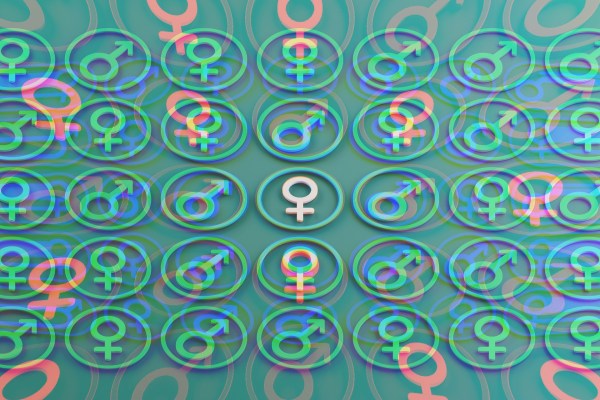Happy Friday! A statue of country music legend Johnny Cash is set to be unveiled in the U.S. Capitol in September, House leadership announced Thursday. The singer who once performed live at Folsom Prison will now watch over a rather different setting—though perhaps not that different.
Quick Hits: Today’s Top Stories
- The United States, Russia, and a handful of other countries completed the largest prisoner swap since the collapse of the Soviet Union on Thursday, freeing Wall Street Journal reporter Evan Gershkovich, former U.S. Marine Paul Whelan, Radio Free Europe/Radio Liberty journalist Alsu Kurmasheva, Washington Post columnist and Russian political dissident Vladimir Kara-Murza, and more than a dozen other Russian dissidents. In return, Russia received nine prisoners from four different countries, including Russian assassin Vadim Krasikov, who was convicted of “state-sponsored murder” and given a life imprisonment sentence for the 2019 killing of a Chechen war veteran in Berlin, Germany, on orders from Russian authorities.
- The U.S. on Thursday recognized Venezuelan opposition candidate Edmundo González as the winner of Sunday’s presidential election in the country, despite Venezuelan dictator Nicolás Maduro claiming victory. The opposition said there were significant irregularities in the vote and the count, and exit polls from a U.S. firm suggested González had won by a wide margin. “Given the overwhelming evidence, it is clear to the United States and, most importantly, to the Venezuelan people that Edmundo González Urrutia won the most votes in Venezuela’s July 28 presidential election,” U.S. Secretary of State Antony Blinken said Thursday. “We congratulate Edmundo González Urrutia on his successful campaign. Now is the time for the Venezuelan parties to begin discussions on a respectful, peaceful transition in accordance with Venezuelan electoral law and the wishes of the Venezuelan people.”
- South Korea on Thursday offered humanitarian aid and other relief resources to North Korea after heavy floods ripped through the nation’s northern region in recent days near its border with China. North Korea has yet to publicly address the gesture; it comes after months of tense relations between the two countries due, in part, to the countries’ exchange of balloons carrying trash and propaganda across their shared border.
- The New York Times reported on Thursday that Hamas’ top political leader, Ismail Haniyeh, was killed by a bomb hidden in the bedroom he was staying in at a guesthouse in Iran. The Times reported that about two months before Haniyeh’s visit to Tehran for the inauguration of the country’s new president, an electronic explosive device was reportedly smuggled into the large compound the Hamas leader was known to stay at and digitally detonated once he was confirmed to be in the room. Israel is likely behind the attack but has not publicly taken responsibility.
- The U.S. government-funded Famine Early Warning Systems Network and the Famine Review Committee declared on Thursday that a refugee camp located in western Sudan—known as the Zamzam camp, hosting some 500,000 displaced Sudanese refugees—has been experiencing famine for more than a month, meaning at least 1 in 5 people in the area are experiencing a severe lack of food “where starvation, death, and destitution are evident.” The organizations also noted that two other Sudanese refugee camps may also be experiencing famine, but there is a lack of conclusive data to verify.
- Thirty-five Senate Democrats introduced the “No Kings Act” legislation on Thursday, which aims to remove executive immunity for presidents and vice presidents who violate federal criminal law and would have Congress—not the Supreme Court—be the ultimate arbiter in questions regarding the potential criminality of executive branch officials. The legislation is part of President Joe Biden’s efforts to reform the Supreme Court and is intended to overturn the high court’s ruling on presidential immunity last month—a decision Senate Democrats said was “incorrectly declared.” Even if it passed the Senate, the legislation would be dead on arrival in the Republican-controlled House of Representatives.
- The Utah state Supreme Court on Thursday kept in place a temporary suspension of the state’s abortion restriction until a lawsuit challenging the law’s constitutionality is decided. The abortion restriction—which would ban abortions “at any stage” of pregnancy, except in instances of rape, incest, or to save the life of the mother—was initially passed in 2020, briefly implemented in 2022 following the reversal of Roe v. Wade, and suspended less than a month later when Planned Parenthood’s Association of Utah (PPAU) filed a lawsuit contending the law violates Utah’s state constitution. “PPAU had raised serious issues about the constitutionality of [the abortion law],” Utah Justice John Pearce wrote in his majority opinion. “The court did not abuse its discretion when it concluded that PPAU and its patients would be irreparably harmed without the injunction.”
‘Feat of Diplomacy’ Results in Massive Prisoner Exchange

Wall Street Journal reporter Evan Gershkovich spent his days in Moscow’s notorious Lefortovo Prison writing. “Maybe, finally, I am going to write something good,” he told his mother, Ella Milman, in the first letter she received from him in April 2023 after his arrest in late March of that year.
Russian authorities had grabbed him in Yekaterinburg, Russia, while he was on a reporting trip. They charged him with espionage—the first U.S. journalist to face such a charge in Russia since the end of the Cold War.
But he was no spy. He was a reporter. The Wall Street Journal—which, like the U.S. government, vehemently denied the espionage charges—reported yesterday that, in his free time before his arrest, Gershkovich worked and reworked the first paragraph of stories just to practice. He once said the phenomenon of Russia detaining Americans on trumped-up charges to exchange them for Russians was a “totally undercovered” story.
Almost 500 days ago, Gershkovich became the story. Today, he’s free—along with two other Americans: fellow journalist, Radio Liberty/Radio Free Europe correspondent Alsu Kurmasheva, arrested last year while visiting her ailing mother, and former U.S. Marine Paul Whelan, detained at a friend’s wedding in Russia in December 2018. The U.S. government officially determined that all three were “wrongfully detained.”
Thursday’s prisoner swap—which also included …
As a non-paying reader, you are receiving a truncated version of The Morning Dispatch. Our full 1,460-word story on yesterday’s multi-lateral prisoner swap is available in the members-only version of TMD.
Senators Pass Bipartisan Social Media Regulations

Forgive your Morning Dispatchers for stating the obvious, but Republican and Democratic lawmakers do not always work well together. Yet elected officials from both sides of the aisle have made an exception to the status quo in recent months, forging informal cross-party alliances over one issue: regulating Big Tech in the name of online child safety.
The Senate did so again this week, voting 91-3 to pass a package of two related bills intended to bolster internet safety measures and privacy protections for young users, some of the most significant federal tech regulations since the end of the last millennium.
The legislation is part of a growing nationwide, bipartisan consensus favoring increased regulation of Big Tech platforms in response to social media’s dangers and downsides, but the push prompts real questions about the wisdom and necessity of such laws and their implications for free speech. Despite the overwhelmingly support in the Senate, the package now faces an uncertain future in the House.
Cross-party collaboration played a significant role in the bills’ formulation and passage. Two senators from opposite sides …
As a non-paying reader, you are receiving a truncated version of The Morning Dispatch. Our full 1,273-word story on the latest effort to regulate Big Tech companies is available in the members-only version of TMD.
Worth Your Time
- Is nature healing? For Law & Liberty, Daniel Buck wrote that educational institutions seem to be realizing they may have thrown the baby out with the bathwater. “Tom Wolfe discusses a similar story—the rediscovery of old truths, this time in the twentieth century—in his famous essay ‘The Great Relearning,’” Buck explained. “Hippies rediscover basic hygiene after deconstructing old bourgeois norms like regular washing, and finding themselves afflicted with diseases not seen in centuries—the itch, the twitch, the rot. Education is undergoing a similar relearning. … In their renunciation of admissions tests, universities stumbled on the wisdom of the thought experiment ‘Chesterton’s Fence.’ The purchaser of a new property, the idea goes, shouldn’t tear down a fence simply because they are unaware of its use. If they do, they may find snow drifts blocking their windows or wolves among the sheep. It is a call to respect the wisdom in existing institutions, but also a plea for intellectual humility. We may not know what’s best, so it is wise to respect those who came before. What we need instead is a rediscovery of fundamentals, an acknowledgment that the old ways work, and a realization that if we sweep away everything old and try to reimagine something better, we will have swept away everything of value.”
Presented Without Comment
New Hampshire Gov. Chris Sununu, in a New York Times op-ed: ‘My Fellow Republicans, Stop the Trash Talk’
With less than 100 days to go until Election Day, any time spent on personal attacks or distracting rhetoric is not just time wasted; it’s time lost. Republicans must hold ourselves to a higher standard. It’s what American people deserve, and it’s good politics, too.
In the (Olympic) Zeitgeist
In a good day for American female athletes, Katie Ledecky became the most decorated U.S. female Olympian and Simone Biles achieved her great comeback after a disappointing Tokyo Games to win gold in the all-around women’s gymnastics competition.

Toeing the Company Line
- In the newsletters: Will explored the differences in approach to artificial intelligence between “tech bros” and D.C. policy wonks and Nick tried to make sense (🔒) of Donald Trump’s decision to make an issue of Kamala Harris’ race.
- On the podcasts: Sarah is joined by Jonah, Chris, and a beach-bound Megan McArdle on The Dispatch Podcast to discuss whether Harris’ newly energized and surprisingly disciplined campaign is getting on the nerves of her opponent.
- On the site: Kevin takes a look at how Democratic antisemitism is affecting Josh Shapiro’s veepstakes chances and has some advice for Harris on fracking, while Drucker reports from Pennsylvania on even left-wing Democrats hoping Harris will run to the center.










Please note that we at The Dispatch hold ourselves, our work, and our commenters to a higher standard than other places on the internet. We welcome comments that foster genuine debate or discussion—including comments critical of us or our work—but responses that include ad hominem attacks on fellow Dispatch members or are intended to stoke fear and anger may be moderated.
With your membership, you only have the ability to comment on The Morning Dispatch articles. Consider upgrading to join the conversation everywhere.